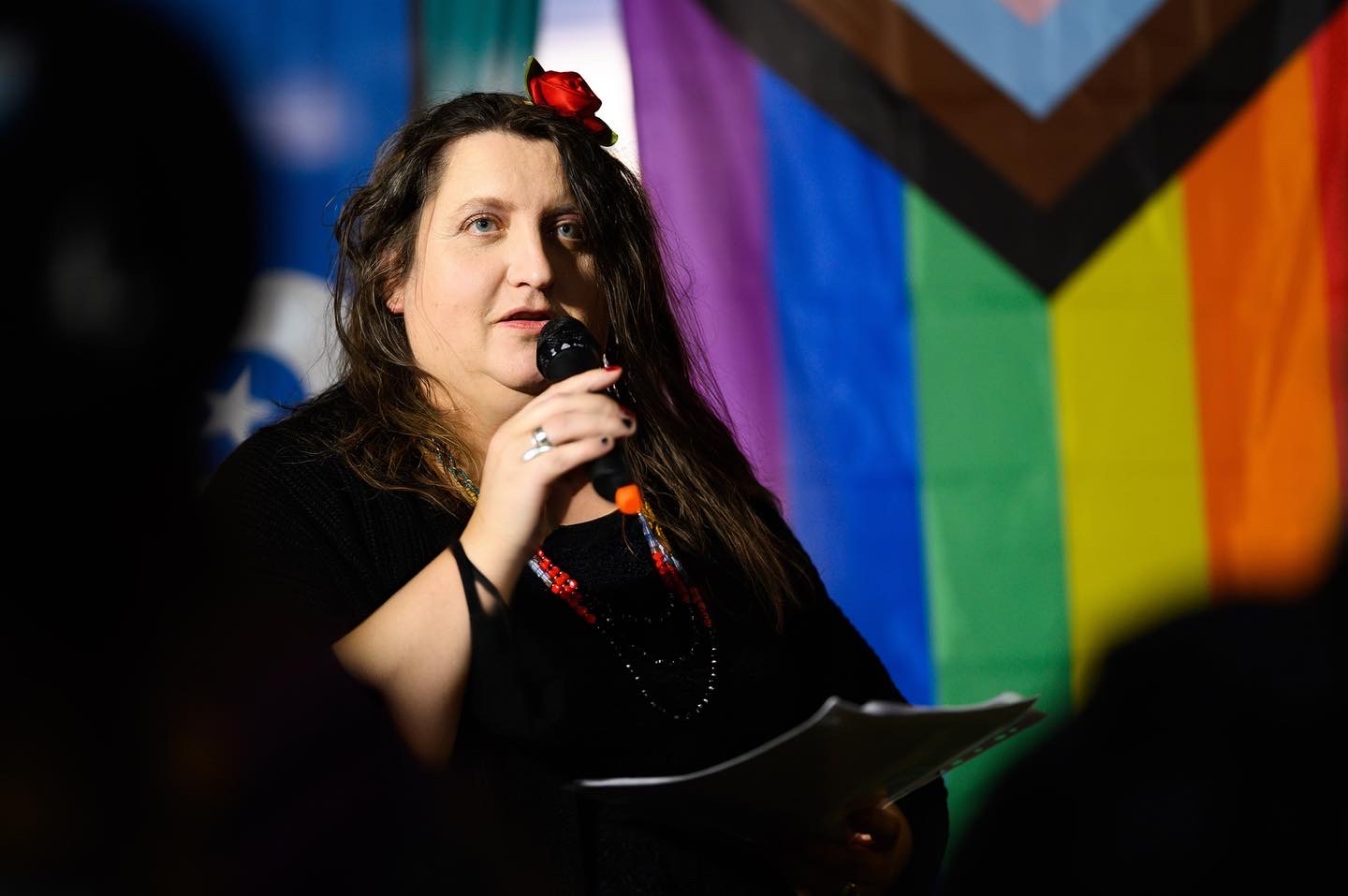
Advance care planning allows those in the LGBTIQ+ community to express, and be respected for, their authentic selves says public advocate Ricki Spencer. For Ricki (they/her), advance care planning gives them a sense of respect, empowerment and understanding that they were initially denied when they first identified as a transgender non-binary person. <> Ricki shared why they became an Advance Care Planning Ambassador during National Advance Care Planning Week (20 – 26 March).
“When I finally said to my family that I was transgender, affirming myself, everything sort of blew up and they wanted nothing to do with me - and that's fine,” they said.
“But what it showed me is that I have to plan a life for myself, and that means planning for what happens towards the end of my life because you never know what is going to happen.”
Ricki said that by identifying as transgender, they wanted to make sure that if something did happen to them, they were affirmed in the gender of their choice and their wishes would be respected. Ricki says this is especially important if conversations around gender preferences haven't been discussed with family, friends or loved ones.
Ricki shared why they became an Advance Care Planning Australia ambassador during National Advance Care Planning Week (20 – 26 March).
“You've affirmed yourself if you are gender diverse or in an LGBTIQ+ relationship, and perhaps you are still not out to your family, but you want others to value your authentic self,” they said.
“Advance care planning allows that to happen without the problems that would arise if you didn't tell anybody.
“Grief is something that we all go through, and I don't take that away from others, but when there's somebody who is trans or gender diverse, we've had a long life of trying to come to a space and a place where we accept ourselves.
“What advance care planning can provide is that kind of assurance that when the time comes, we will be respected.”
Ricki described advance care planning in a simple, but powerful, analogy. They said to think of advance care planning like taking out car or health insurance.
“I see this (advance care planning) as my insurance, that if something is to happen to me at this moment or I'm on life support, that people know ‘well this is Ricki, this is how Ricki wants to be affirmed as she's passing away, her organs will be donated, she wants the pictures of her cats buried with her’,” they said.
“I know that I will be remembered and that other people who aren't in my life now will not be asked to make decisions for me.
“Even those that are close to me don't have to make that decision because I've made that decision myself. “So as part of the grieving process, those who choose to care for me, or about my passing, can focus on the good things of my life and they don’t have to worry whether they're making the right or wrong decision.”
Ricki said they had seen so many people, particularly with the attitudes prevalent in the eighties, who died tragically and were not commemorated in the way they would have wanted to be authentically remembered. They believe advance care planning, backed by a more inclusive and accessible health care system today and into the future, can prevent this from happening.
“It’s really taking ownership of our lives,” she said. “For some of us, we've had that taken away, and now there is more of a shift in our healthcare where more and more health services are acknowledging transgender and gender diverse. And as a society we now have marriage equality.
“I just think it's a wonderful advancement that we are so lucky in, you know, 2023 to have something like this.
“We have the MyHealth app that allows us to put our information on that platform and it sits there and you can look at it, you can download it, you can then change it.
“If there's something you are in control, you are driving that destiny.
“For me, it's given me peace of mind because now I can focus on what's most important, that's living and doing the things that I enjoy because I've taken care of something that I wanted to. Now I can focus on my health and the other things that are important to me.”
Ricki’s aspirations for the future of advance care planning in Australia is a powerful and equally important one.
“My goal would be to have every person in Australia, from the LGBTIQ+, multicultural and multi-faith communities and people living with a disability, to really consider having a conversation as a start,” they said.
“I think it's taken us 40 years to get to this point, and this is something I think that all communities and community leaders now have a responsibility to lead and to really encourage everybody to think about and get involved in.”
Ricki Spencer (They/Her) M.Ed. BSW. BA B.Ed. has over 20 years' experience working in welfare provision as a social worker, teacher, and health promotions facilitator. Ricki is the current Convenor for Sociology of Media in Australia and Sociology of Teaching in Australia of the Australian Sociological Association, LGBTIQ Community Housing Reference Group Member for HAAG, Consumer Advisory Member for CIH Australia, Consumer Panel Member for Royal Melbourne Hospital, Breast Screening Victoria St Vincent’s Hospital. Social Media Officer for AASE Australian Association for Special Education teachers and board member for (SEV)Social Education Victoria.
Ricki identifies as a transgender nonbinary person with lived experience of disability.
See also:
Advance care planning for people who are LGBTIQ+
Taking Control: LGBTQ+ Toolkit for Palliative care and End of Life Decisions